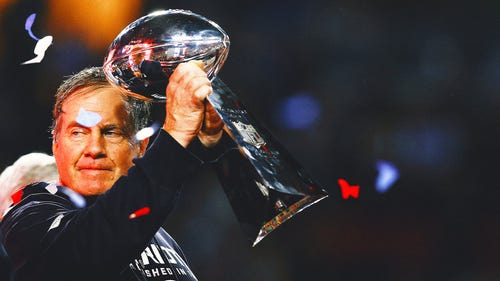
Proving Their Worth
By Martin Rogers
Derrick Henry is a big deal this season. He is enough of a big deal that no self-respecting list of MVP candidates is complete without the presence of the running back juggernaut for the 6-2 Tennessee Titans.
After signing a four-year, $50 million deal with the Titans, Henry has performed at an elite level this season, which is kind of a big deal in itself, given that such things have become the most scrutinized of the National Football League’s contractual offerings.
Let’s clarify. There has been a lot of conjecture in recent times about just how much true worth should be given to the top NFL running backs.
It’s not that the men who fearlessly plow their bodies forward into a pile of opponents determined to smash them to the floor are not seen as valuable. Or that the yards they accumulate by force, ferocity and cunning are insignificant.
The perceived problem is that, for a variety of factors and because of some headlining failures, they have come to be regarded as replaceable, if not downright disposable.
Heading into a juicy Thursday Night Football tussle with the Indianapolis Colts (8:20 p.m. ET on FOX), Henry heads a group trying to blast away the concept that running backs just aren’t good value. The trio of Henry, Alvin Kamara and Dalvin Cook all got paid last summer and each is putting up the kind of monster numbers that guarantees the right kind of recognition.
"I’ve got Derrick Henry (for MVP)," FS1’s Kevin Wildes told First Things First. "Here’s a fun fact for you. Last week was the first week that Henry ran for over 100 yards and the Titans lost. They are 16-1 when he runs over 100 yards. That’s the definition of MVP. ‘If I play well the team wins. If I don’t, we lose.’ That’s why he’s the MVP."
There were those that scoffed when over the course of a September weekend, Kamara was given $77.1 million over five years by the New Orleans Saints and Cook signed for $63 million and five years with the Minnesota Vikings. A couple of months earlier, Henry had locked in his four year, $50 million deal, while Christian McCaffrey set the bar in April. The Carolina Panthers came to terms with McCaffrey for four years and $64 million.
"All of these players are young, accomplished and talented," wrote Mike Tanier of the New York Times. "And all of their teams are likely to experience almost immediate buyer’s remorse, because most NFL running backs age like an open bottle of cheap zinfandel."
Such doubts are common in not just Manhattan newspaper offices, but also in those of NFL general managers. They are based off analytical data, detailed precedents and a formulaic strategy. Okay, let’s be real here, they are based in large part off the fear that (insert name of hot young running back of your choosing) is going to turn into Todd Gurley or Le’Veon Bell the moment the first hefty check lands in their account.
Gurley went from being the best offensive player in football in 2017 to trying to rebuild his career now in Atlanta, while the hapless New York Jets couldn’t wait to shed Bell’s high number from their balance sheet.
However, the recent rushers to collect superstar money have come up big, at least so far. Henry’s epic stiff-arm against the Buffalo Bills provided some of the best photographs of the season while sending Josh Norman into orbit. His overall productivity of more than 105 rushing yards per game should perhaps do something similar to the pervading negativity towards running back worth.
Kamara and Cook are both over 1,000 all-purpose yards on the campaign already, while McCaffrey wasted no time in his return from injury last weekend, with 151 total yards and two touchdowns.
And yet, there is still some conflicting evidence. When replacements have been needed, most notably in the case of Mike Davis for McCaffrey and Alexander Mattison for Cook, the deputies have typically acquitted themselves admirably. Even with the output of the running back elite, cautious GMs will still have cause for pause in the offseason, especially with the college ranks generating a steady supply of young, cheap talent.
Sometimes, the differences between the best and the rest are marginal. Take Russell Wilson and divide his money by five and you get Sam Darnold. Do it to McCaffrey and you get his teammate Davis, not as good, but more than capable of doing a passable imitation for several weeks.
Last season, 15 running backs rushed for more than 1,000 yards, and 12 of them were still tied to their initial rookie contracts. Given the explosive year being enjoyed by the likes of Henry, Cook and Kamara, that list should look markedly different this time.
Furthermore, things like Henry’s performance in the most recent playoffs, when he took the Titans to the AFC Championship Game, should help the skeptics realize that a quality running back is the kind of guy you want in your locker room.
"People are intimidated," Pittsburgh Steelers head coach Mike Tomlin said when asked what danger a player like Henry posed. "And there are tangible things to be intimidated by."
Henry, Kamara, Cook, McCaffrey, plus the next crop hoping to cash in on their bruising exploits, are trying to prove a few things. That they are not a luxury, that quality matters and that they are individually excellent rather than the beneficiaries of favorable systems.
In short, that they are all a big deal – and worthy of one.










